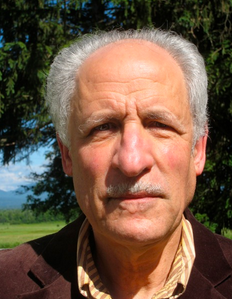In other words, this member of the U.S. Supreme Court said that each Catholic's commitment to his Church supersedes his obligations to his nation, and that therefore Scalia's personal obligation to obey the Pope superseded the professional oath of office that Scalia swore to when he joined the Supreme Court, in which he promised to faithfully execute the Constitution of the United States of America. To him, there was a higher Law than the Constitution of the United States, and he must never do anything that would violate it.
He was thus exactly the opposite type of Catholic from John F. Kennedy, who made clear that dictates of the Pope had no bearing upon his decisions as the U.S. President.
Scalia even expressed the view that he would dread being compelled by circumstances to choose between these two commitments, and that those would all be "disastrous consequences" that he had described, but that, if the Pope were to rule ex cathedra against the death penalty, then this command would be absolutely binding upon not just himself but every Catholic, because, according to Scalia, Papal edicts transcend not only the believer's individual conscience, but even his own nation's laws and also the given Catholic believer's personal sworn commitments.
In this speech, this Roman Catholic Supreme Court jurist interpreted the Church/State relationship in precisely the opposite way from JFK. During the intervening 40+ years after JFK, with the advent of President Reagan who appointed Scalia, the fundamentalist religious viewpoint had soared to become so mainstream in the U.S., that Scalia was able to say such things now without sparking massive public outrage.
To the contrary, practically no one at the time saw fit to remark at all upon Scalia's speech; nor did the press do so. Clearly, the Church/State separation that was accepted unquestioningly in 1960 in America, had become actually alien to American political culture four decades later.
There wasn't even any serious reaction to this speech among the scholarly audience who heard it delivered. Quite the contrary: The speech transcript (subsequently removed from the website of the Pew Forum, which hosted this speech) indicates that Scalia's address was interrupted seven times by laughter from the audience. This joviality was in keeping with the speech's style of camaraderie, which encouraged listeners to glide over the most serious things Scalia was saying. His scholarly audience seems to have been totally unaware -- oblivious, actually -- that they were listening to treasonous jurisprudential ideas from a member of the U.S. Supreme Court. But these assertions, by Scalia, in front of this audience of scholars, were nothing less than an advocacy of theocracy, coming from a U.S. Supreme Court jurist, duty-bound to enforce the U.S. Constitution.
It is further of interest that Scalia quoted, for authority on this grave matter, not the U.S. Constitution he swore to uphold when he first joined the Court in 1986, but instead, he quoted the Bible that he had learned to revere ever since his childhood. He quoted specifically the entirety of Romans 13:1-5. Scalia said that this biblical passage presents (which it unquestionably doesn't) the basic theocratic position; namely, as Scalia put it, that "government, however you want to limit that concept, derives its moral authority from God," and not, as Thomas Jefferson had claimed in the Declaration of Independence, "from the consent of the governed." When the Declaration of Independence, with those precise words ringing in it, was unanimously adopted by the representatives of the thirteen founding colonies on 4 July 1776, the entire document became thereby an intrinsic part of the subsequent U.S. Constitution of 1787. Nothing in the Constitution contradicts the Declaration, including its statement that government derives its authority from the consent of the governed, instead of from any god, such as Scalia here insists.
In fact, the very opening words of the Constitution, the Preamble, tell us exactly upon whose authority the entire document rests: it's not the authority of God; it's not even the authority of the various states (such as Scalia's Federalist Society asserts as a means of removing the authority of the people over the Federal Government). The opening words of the Constitution name "We, the people of the United States," as the sole source of the document's authority. The Preamble then immediately proceeds to itemize the purposes for which the Constitution and thus the entire Government of the United States serve: "in order to form a more perfect union, establish justice, insure domestic tranquility, provide for the common defense," and now come the two kickers, "promote the general welfare, and secure the blessings of liberty to ourselves and our posterity." (America's government officials are told right there whom they are obligated to serve -- "the people" -- and how: these officials must "promote the general welfare, and "," and they are not obligated to serve God or anything else.) Then comes the Preamble's close: "do ordain and establish this Constitution for the United States of America." The clauses, "promote the general welfare," and, "secure the blessings of liberty," not only reinforce the opening "We the people" as the sole source of the Constitution's authority, but they identify "the general welfare" and "the blessings of liberty" of these "We, the people" as the Constitution's concerns.
Next Page 1 | 2 | 3 | 4 | 5 | 6 | 7
(Note: You can view every article as one long page if you sign up as an Advocate Member, or higher).




